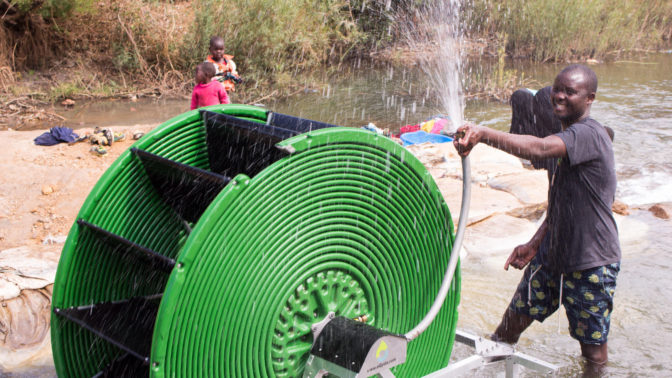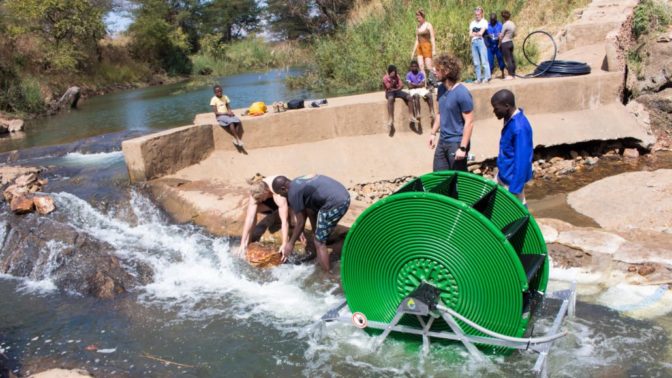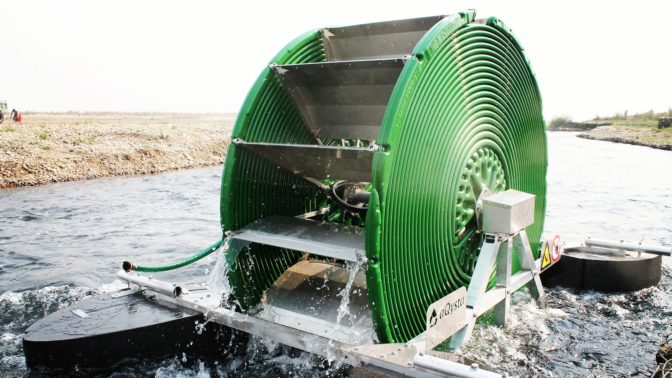COVID-19 success stories – a blog series: aQysta

In this blog series, we explore how some of our epNetwork members have dealt with/been dealing with the COVID-19 pandemic in their work and in their communities. First in the series is aQysta.
Siemens Stiftung: In general, how have you and your team been able to manage the uncertainties and challenges that have come with the COVID-19 pandemic so far? Both personally and from a business angle.
aQysta: Dealing with uncertainties, be it in the pandemic or normal days, is quite a job in itself. But as a growing startup, and being in this field for almost 8 years now, we can say that, as a company, we are kind of familiar in keeping afloat with all kinds of challenges. The key? To have a strong mind, out-of-the box thinking approach in tackling new situations and to keep an eye ahead of you and your business. But there were some days when the pandemic situation shook us in ways we never thought of. Or, we would like to put is as “a test of our agility to the fullest”, to the extent that even if we want to bring the positive change we so seek, we were not able to.

Our community, our stakeholders, our clients, and our farmers were affected, too, and most of the time much more than we were. So, while we waited for the global restrictions to loosen, we kept our original 2020 plans at bay, and devoted our attention and resources during our “work-from-home” days into preparations and planning on how to put aQysta into the world once the pandemic situation subsides. We invested in expanding our team in India, Malawi, and Colombia, and revised many internal processes to make them more efficient and scalable. We do not know when this pandemic will be over but, we are convinced that through working together, the world will eventually come out on the other side.
Siemens Stiftung: Have you been able to continue operating like you were prior to the pandemic? If so, could you elaborate on reasons for your steady success throughout this time? If not, what changes have you made in order to remain in operation?
aQysta: We have tried to operate like before, with the safety of each of our team members and stakeholders being top priority during our activities. Yet this is easier said than done. Remote working was not much of a challenge for us because aQysta has always been a company with a global team and international outlook. With its strategic wing based in the Netherlands, aQysta has its major operations running in India, Malawi, Nepal, Colombia, and Indonesia, and now in Spain, too. The core teams that meet each other on the daily basis for work are based in seven countries. So, even in the days prior pandemic, most of our communications and operations, except for physical manufacturing of goods and last-mile distribution, were and are based on several cloud-based tools and video platforms. We were kind of virtual way before pandemic forced all of us to operate virtually!

Secondly, we are a learning organization with a young and talented team willing to learn and adapt, and to get things done even if we have to go the extra mile to reach our goal. The widely known start-up culture has remained in aQysta’s DNA even though we are now structured as an international corporation. Plus, creating a sustainable world for food security while doing good for the environment is a value we all carry deep in our hearts and where we draw our daily motivation from. So, despite the regular travel restrictions and logistical challenges, we are continuing to reach out to farmers through the virtual means at our disposal.
Here is the sneak peek at major events that took place in 2020 at aQysta.
Siemens Stiftung: Has there been a need to pivot and completely work on a new product to support the COVID-19 relief efforts? If so, what have you developed and how has this helped people in need?
aQysta: The Barsha Pump has features that can support farmers who are in need of reliable irrigation for year-round farming, helping to increase their income and aid in general food security. Irrigating crops while protecting the environment is an ongoing issue and, because of that, we did not need to work on a new product to support COVID-19 relief in particular. The Barsha Pump is an off-grid technology, so if at all, COVID-19 made it even more obvious how important our product is for the smallholder farmers around the world.
Siemens Stiftung: How has the pandemic affected your local community?
aQysta: Here is a concrete example from Sumba Island, Indonesia.